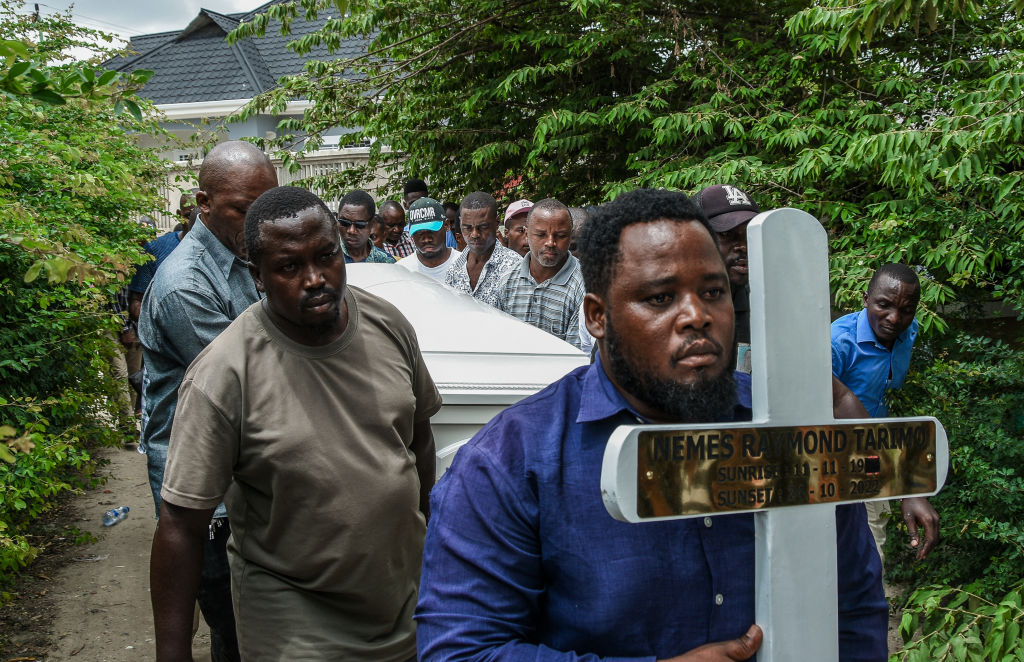A young Togolese student was lured to Russia last year by a scholarship offer. But instead of studying at a university, he was sent to the front lines of Russia’s war with Ukraine, where he was one of several Togolese nationals captured and detained by Ukrainian forces.
The Martin Luther King Movement (MMLK), a Togolese human rights organization, alerted authorities to the young man’s case in March. In a statement, the MMLK said the man received his study visa at the Russian Embassy in Cotonou, Benin, and left for Russia on August 21, 2024.
“Arriving in Russia, he was forced to join the army to go to the front in Ukraine,” the statement said. “It was there that he was seriously wounded, captured and thrown in prison.”
In response, Togo’s Ministry of Foreign Affairs, Regional Integration and Togolese Abroad issued a statement urging its population, particularly younger people, to exercise vigilance when pursuing studies abroad.
The ministry urged Togolese residents to “verify the authenticity of scholarship offers before committing to any commitment, and to contact its competent services or any other relevant ministry, particularly the Ministry of Higher Education and Research, to obtain reliable and secure information before any departure abroad, particularly to Russia.” It also said Togolese diplomats were working to aid Togolese nationals in Ukrainian captivity.
In June 2024, Bloomberg reported that Russian officials were telling African students and young workers they would not extend their visas unless they agreed to join the military. Russia also has recruited young people from Burundi, Cameroon, the Central African Republic, the Democratic Republic of the Congo, Sierra Leone, Somalia, Tanzania and Uganda.
African recruits are commonly enticed by relatively high salaries and the prospect of a Russian passport. As of November 2024, Russia had granted citizenship to more than 3,000 foreigners in exchange for military service. Some of the fighters are African inmates in Russian prisons who are promised to have their sentences reduced.
The push to recruit foreign fighters “allows the Kremlin to acquire additional personnel for its war effort in the face of mounting casualties,” according to the United Kingdom’s Ministry of Defence. Critics have slammed some of the Kremlin’s recruitment practices as human trafficking.
Among the thousands of people tricked into leaving the continent was Samuel, a young Cameroonian offered a job as a caretaker in Russia. He was instead sent to a military camp, given a uniform and an AK-47 assault rifle, forced to sign a contract, and sent to the front lines, where he said African fighters were sent to recover corpses or travel several kilometers to spot targets.
“Here, as soon as we can walk, they send us to the front,” Samuel, a pseudonym, told Radio France Internationale (RFI). “The Africans are on the front line. The Russians stay in the camp, sending the blacks and internationals to the front to occupy and advance.”
Samuel said foreign fighters were poorly equipped, and those who retreat got tortured. In mid-December 2024, Samuel was recovering from an injury when he sent a message to RFI saying he was ordered to go on a suicide mission the next day. “I’m going to drop the gun so I don’t have to go,” he said. “I’ll probably be tortured and sent to prison, but I’d rather save my life.”
It was among the last messages RFI received from him.
Observers say Russia needs 20,000 or more new recruits a month to compensate for battlefield losses. In November 2024, the deadliest month of fighting since the war began, an estimated 45,680 Russians died, according to the U.K.’s Ministry of Defence.
An estimated 112,000 Russian forces died in the war last year, according to the BBC, which acknowledged it is difficult to calculate the exact number. “Russian recruitment also increased in the second half of 2024 and exceeded Russian casualties, allowing Moscow to generate additional formations,” military analyst Michael Kofman told the news outlet.

